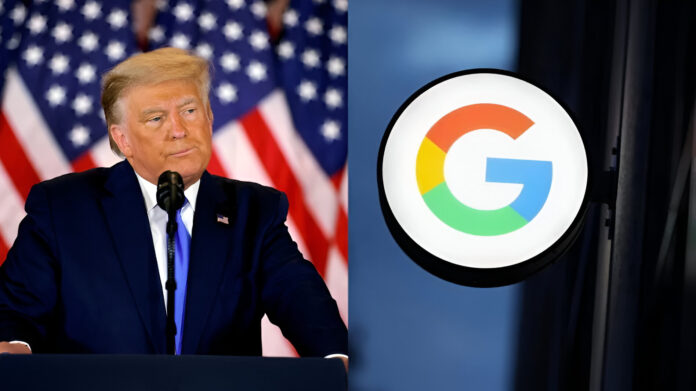Google is pulling back on its diversity hiring goals. It is joining a growing number of U.S. companies that have either scaled back or completely scrapped their diversity, equity, and inclusion (DEI) initiatives.
The company informed employees of the shift in an internal email on Wednesday, responding to an executive order issued by President Donald Trump. The order places pressure on government contractors to eliminate DEI programs, which could lead to significant financial penalties if deemed non-compliant.
As a major player in the tech industry, Google provides various technologies and services to the federal government, including its rapidly expanding cloud division, a crucial part of its artificial intelligence push.
Google’s parent company, Alphabet, subtly acknowledged this shift in its latest 10-K filing with the Securities and Exchange Commission. Notably, the company removed language from previous years that stated it was “committed to making diversity, equity, and inclusion part of everything we do and to growing a workforce that is representative of the users we serve.”
In a statement to The Associated Press, Google reaffirmed its commitment to workplace inclusivity but acknowledged the need to reassess its programs in light of new government directives. “We’re committed to creating a workplace where all our employees can succeed and have equal opportunities, and over the last year we’ve been reviewing our programs designed to help us get there,” the company said. “We’ve updated our 10-K language to reflect this, and as a federal contractor, our teams are also evaluating changes required following recent court decisions and executive orders on this topic.”
This move follows a broader trend among major corporations. Just two weeks ago, Google CEO Sundar Pichai and other tech leaders including Tesla’s Elon Musk, Amazon’s Jeff Bezos, Apple’s Tim Cook, and Meta’s Mark Zuckerberg stood with Trump during his inauguration. Meta eliminated its DEI program last month, while Amazon scaled back its initiatives in December, shortly after Trump’s election victory.
The rollback of DEI programs isn’t limited to tech companies. Industry giants such as Disney, McDonald’s, Ford, Walmart, Target, Lowe’s, and John Deere have also dialed back their efforts in response to shifting political and legal landscapes.
Trump’s executive order introduces financial risks for federal contractors with DEI programs that the administration deems “illegal.” Companies found in violation could face severe penalties under the 1863 False Claims Act, which allows for damages three times the amount in question. Additionally, the order directs federal agencies to investigate up to nine publicly traded companies, large non-profits, and other organizations that maintain DEI policies.
The challenge for businesses is determining which DEI practices might now be classified as “illegal” under the new administration. The order aims to “terminate all discriminatory and illegal preferences, mandates, policies, and programs” and to compel federal agencies to “combat illegal private-sector DEI preferences, mandates, policies, and activities.”
For years, diversity efforts in both the public and private sectors have included initiatives like anti-discrimination training, pay equity studies, and recruiting strategies focused on hiring more women and underrepresented minorities. Google has been engaged in such efforts for over a decade but intensified them in 2020 after the murder of George Floyd ignited a national conversation about racial justice.
Following Floyd’s death, Pichai set a goal to increase representation of underrepresented groups in Google’s leadership ranks by 30% by 2025. While the company has made some progress, it hasn’t dramatically changed the overall makeup of its leadership. Google’s 2024 diversity report shows that Black representation in leadership rose from 2.6% in 2020 to 5.1% last year, while Hispanic representation increased from 3.7% to 4.3%. The percentage of women in leadership grew from 26.7% to 32.8% in the same period.
However, Google’s workforce as a whole remains largely unchanged in terms of diversity. Black employees make up just 5.7% of the company’s total workforce, while Latino employees account for 7.5%. Additionally, two-thirds of Google’s global workforce is male.
As government policies shift and legal challenges mount, companies like Google must navigate a complex landscape to balance their commitments to diversity with new regulatory constraints.





